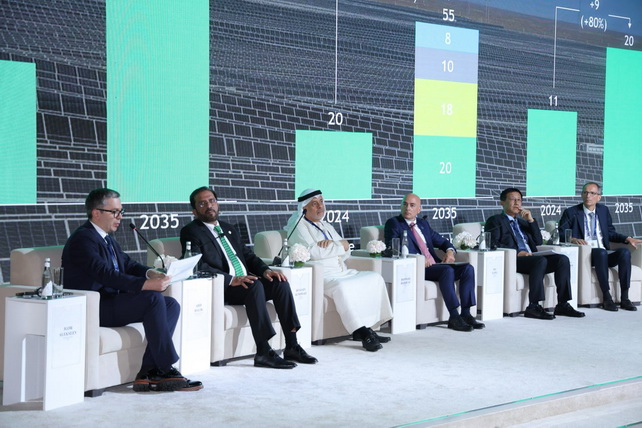
Uzbekistan Aims for 25 GW of Renewable Energy by 2035
Uzbekistan Aims for 25 GW of Renewable Energy by 2035
Tashkent, Uzbekistan (UzDaily.com) — On 10 June 2025, as part of the Tashkent International Investment Forum, a panel session titled “The Green Development Model of New Uzbekistan: The Role of Renewable Energy” brought together global energy leaders to discuss the country’s ambitious energy transition goals.
Moderated by Igor Alekseev, Managing Director and Partner at Boston Consulting Group (BCG), the session featured speakers from leading international energy companies, including ACWA Power, AMEA Power, Masdar, Goldwind, and EDF Renewables.
Against the backdrop of steady economic growth and a rising population, Uzbekistan has set a bold target: to nearly double its electricity consumption by 2035 — from the current 68 TWh to over 120 TWh. To meet this growing demand, the country plans a major expansion of its generation capacity, from 20 GW to 55 GW, with nearly half — around 25 GW — to come from renewable energy sources. The transmission network is also set for a dramatic upgrade, with the length of high-voltage lines increasing from 11,000 to nearly 20,000 kilometers.
This transition toward green energy will require not only massive investment but also profound changes in Uzbekistan’s technological, regulatory, and institutional frameworks. Panelists examined the key challenges the country may face on its path to sustainable energy and discussed strategies for overcoming them.
One of the central themes was attracting investment across generation, distribution networks, and energy storage systems. Participants stressed the importance of a predictable and transparent regulatory environment, along with consistency in the development of market mechanisms. Special attention was paid to incentives for investing in flexible generation capacity — critical for periods when solar and wind output falls short. In this context, the introduction of capacity payments was discussed as a key tool to enhance the sector’s investment appeal.
The panel also focused on the need to build a flexible and resilient energy system. Speakers highlighted that digitization of grid management, efficient dispatching, and the development of battery energy storage systems (BESS) will be essential for the reliable integration of renewables into the national energy mix.
Human capital emerged as another vital pillar of the energy transition. By 2035, the sector is expected to require more than 50,000 qualified professionals for the design, construction, and operation of new facilities. In light of this, the panel emphasized the urgency of scaling up vocational training, including joint education initiatives such as ACWA Power’s partnership with Shirin Energy College.
Summing up the discussion, Igor Alekseev noted that successfully integrating renewable energy into Uzbekistan’s power system will require a holistic approach — encompassing infrastructure modernization, new technologies, and systematic workforce development. He emphasized that the country is already advancing with strong momentum on its reform path and, in the view of experts, has every opportunity to become a regional leader in green energy in Central Asia.